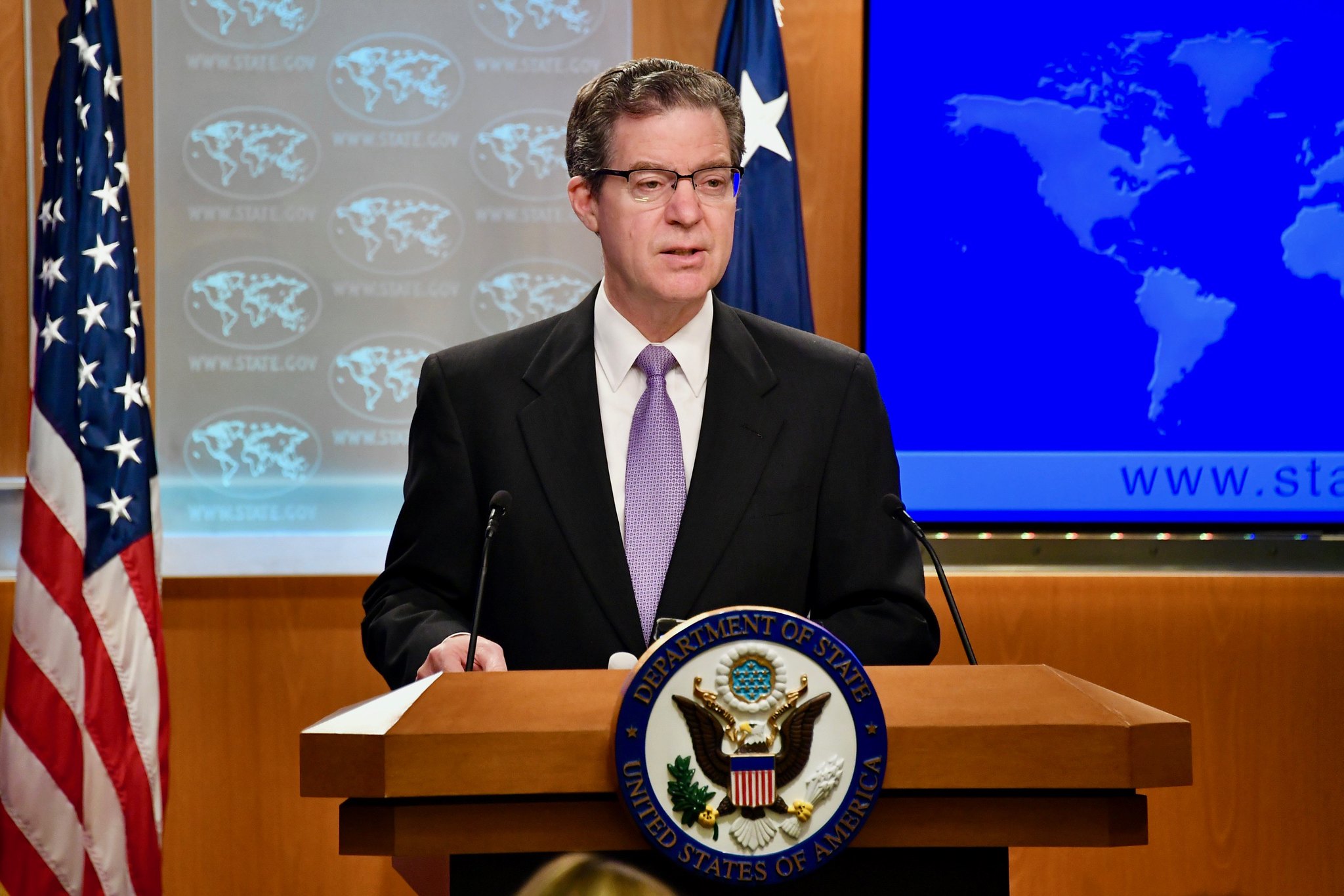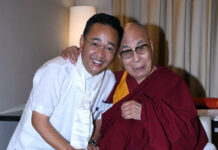
(TibetanReview.net, Nov09’19) – The United States government is asking the United Nations to take up the Dalai Lama reincarnation issue in an intensified bid to stop China from imposing a fake reincarnation of Tibet’s exiled religious leader in future.
Sam Brownback, the US ambassador-at-large for international religious freedom, has made the remark after a visit last week to Dharamsala where he spoke at length about the succession issue with the 84-year-old Dalai Lama at his exile home in India.
Brownback said he told the Dalai Lama that the US would seek to build global support for the principle that the choice of the next spiritual leader “belongs to the Tibetan Buddhists and not the Chinese government”, reported the AFP Nov 9.
“I would hope that the UN would take the issue up,” Brownback was quoted as saying.
While he has acknowledged that China, with its veto power in the Security Council, would work strenuously to block any action, he hoped countries could at least raise their voices at the United Nations.
“I think it’s really important to have an early global conversation because this is a global figure with a global impact,” he has said.
“My estimation undoubtedly is that the [Chinese] Communist Party has thought a lot about this. So they’ve got a plan and I think we have to be equally aggressive with a plan.”
The Dalai Lama’s position is that so long as the Tibet issue remains unsolved during his lifetime, he could not be reborn in a territory under Chinese control, for this would defeat the very purpose of the reincarnation. But atheist China, which does not believe in life after death, has made it plain that it will have his reincarnation chosen only from among children born in a territory under its rule while declaring any other choice to be illegal.
The Dalai Lama has for decades asked China to grant autonomy to the Himalayan territory, which the latter annexed in 1951, to enable the Tibetan people to preserve their ethnography and cultural identity. China’s constitution grants autonomy to Tibet – as well as other territories such as Inner Mongolia and Xinjiang – but is in practice more tightly and directly controlled than other parts of the People’s Republic of China.





